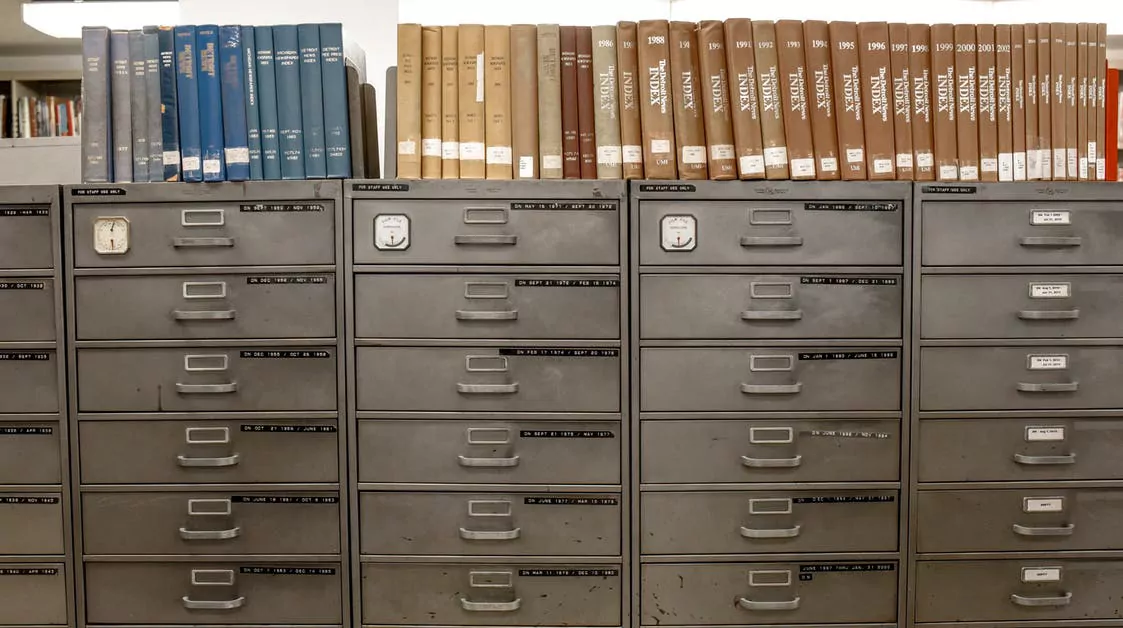How to Store Your Legal Documents Safely and Securely

Any company’s lifeblood is information. As a result, safeguarding your information assets should always be a top concern. However, data kept in several places and formats can be difficult to track and manage properly, which is why organizations require document storage services.
Document Management Companies are a safe and cost-effective solution to manage large amounts of data. Paper records, electronic documents, backup tapes, and other essential data require improved protection against natural catastrophes and are vulnerable to irreparable harm if not handled or preserved properly.
Furthermore, storing your files with the correct records management business saves you important space and time. Let’s examine how these storage services can affect your organization in light of what we just discussed. It is more crucial than ever to safeguard sensitive information at work. Theft and misappropriation of information regarding customers, workers, financial data, or the business itself can have disastrous consequences. Identity theft, both personal and commercial, is a developing problem that allows for massive fraud. There are also serious legal ramifications for failing to appropriately secure consumer or employee data.
Is Secure Document Storage a good idea?
It makes a lot of sense to employ a safe document storage service supplied by a well-trusted expert document storage company no matter what sort of business you run.
While the idea of entrusting your highly sensitive papers to another organization may sound frightening at first, it may be a wise decision since it can help your business become much more efficient and safe.
The most obvious advantage is the amount of floor space you will be able to free up by transferring your file boxes and filing cabinets to a secure off-site location. One of the primary reasons why a growing firm has to relocate offices so frequently is that they soon outgrow their allotted office space due to the ever-increasing floor area required to keep their business papers.
You will have more elbow room to spare when onboarding new employees since you will have more floor space in your workplace to allow your personnel to spread out and create a healthier working atmosphere free of clutter and large file cabinets.
The Fundamentals of Document Security
- Recognize Significant Documents
- Safe Storage
- Avoid Using Spaces That are Shared
- Keep Track of Your Scribbles
- Shredder, Shredder, Shredder
In any case, digital document security has been a major concern over the past decade and deservedly so. Nevertheless, paper copies are circulated and kept for such a piece of vital information. Unless taken care of properly, they pose a severe security concern as any breach may cause huge amounts of damage to your business, reputation, and clients alike.
If you handle hosting sensitive information either as an employee or an owner of a business organization, you are directly involved in document security. Below are five simple measures that you can incorporate to stay protected at all times.
Article Sponsored: Find something for everyone in our collection of colourful, bright and stylish socks. Buy individually or in bundles to add color to your drawer!
Recognize Significant Documents
Learn about which papers are significant to your organization and its objective and what measures shall be taken to protect each of their types. Documents that may lead to security breaches in general include:
- Salary and superannuation records (employee records)
- Customer information
- Sales figures
- Pre-release financial data and forecasts
- Intellectual property rights
The specifics of which data must be protected and how will vary by business, so make sure to learn the specifics for your workplace.
Safe Storage
When you’re finished with a document, make sure it’s securely stored, whether in a company safe or a locked cabinet in your office. It may only take one data security breach to bring a company to its knees, so incorporate this into your daily work routine.
Avoid Using Spaces That are Shared
Documents should never be left in communal areas such as break rooms, conference rooms, or printing areas. Shared photocopiers are especially problematic because the documents are not only left accessible but can also be copied on the spot!
Keep Track of Your Scribbles
It’s normal to take handwritten notes during a busy day, but be cautious. If the information you’re scribbling down is sensitive, you should treat these notes as you would any other sensitive document. Don’t just toss them in the trash or leave them on your desk; have them disposed of properly along with the official documents.
Shredder, Shredder, Shredder
The significance of destroying sensitive papers cannot be overstated. Paper documents can be stolen, photographed, or just remembered. Even discarded papers pose a risk if they are not properly destroyed first, since thieves are not above looking through the waste for information. Any papers that aren’t required should be destroyed and disposed of carefully — if they don’t exist, they can’t be taken.
Any firm must have a regular and secure shredding service. It is preferable to work with a provider that also provides secure paper recycling. They will transfer the remains of shredded papers securely to be pulped and recycled, leaving no trace of the information behind.


